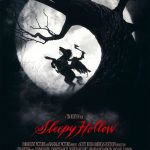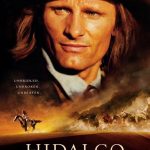The Woman King (2022)
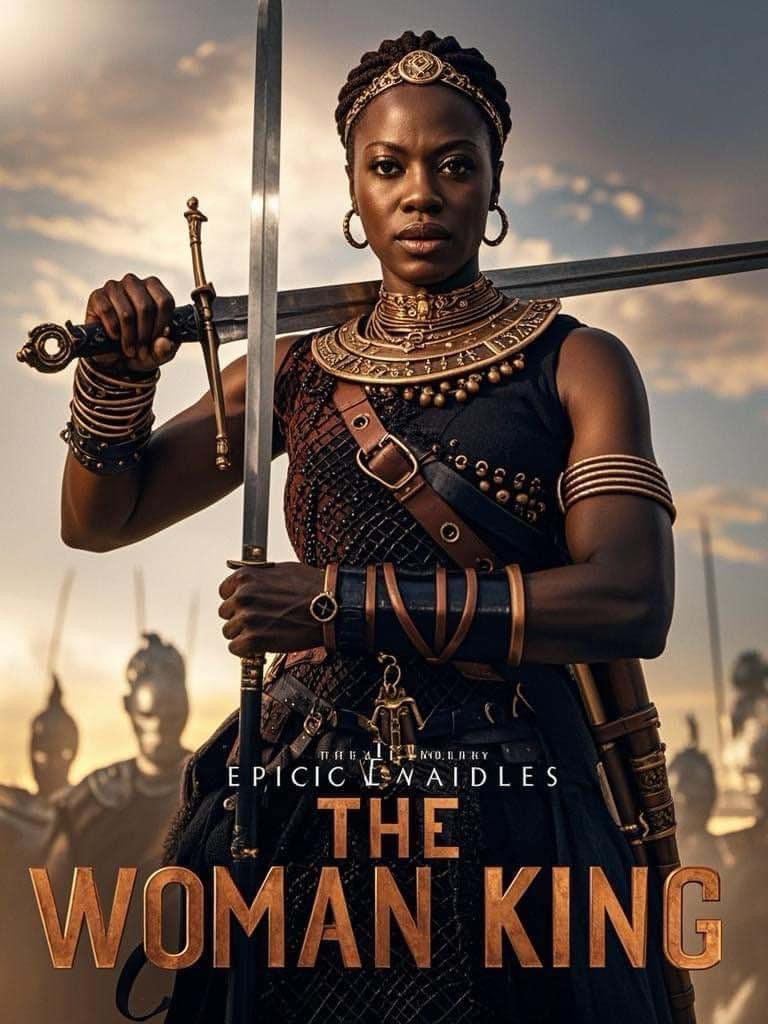
Directed by Gina Prince-Bythewood, The Woman King (2022) is a historical epic that brings to life the story of the Agojie, the all-female warrior unit of the West African Kingdom of Dahomey, during the 19th century. Anchored by Viola Davis’s commanding performance, the film masterfully blends action, emotion, and historical commentary to create a gripping cinematic experience.
Plot and Storytelling
The story revolves around General Nanisca (Viola Davis), the leader of the Agojie, as she trains a new generation of warriors to protect their kingdom from external threats, including the encroaching Oyo Empire and the transatlantic slave trade. Among the recruits is Nawi (Thuso Mbedu), a spirited young woman who challenges tradition and seeks to prove her worth.
The plot is a compelling blend of historical events and fictionalized storytelling. The narrative explores themes of resilience, sacrifice, and empowerment while addressing the complexities of African involvement in the slave trade. It does not shy away from moral ambiguity, depicting the internal and external conflicts faced by the kingdom as it navigates survival in a brutal era.
Gina Prince-Bythewood’s direction ensures that the story remains intimate and character-driven, even amid its epic scale. The screenplay, penned by Dana Stevens with a story by Maria Bello, effectively balances action and drama, allowing the characters’ emotional arcs to shine.
Performance and Characterization
Viola Davis delivers a powerhouse performance as General Nanisca. Her portrayal is a masterclass in strength and vulnerability, showcasing a leader who carries the weight of her people’s survival while grappling with her own traumatic past. Davis embodies the role with physicality, grace, and an emotional depth that is nothing short of mesmerizing.
Thuso Mbedu shines as Nawi, the film’s emotional core. Her journey from defiant recruit to fearless warrior is both relatable and inspiring. Lashana Lynch provides a standout performance as Izogie, bringing warmth, humor, and ferocity to the role of a seasoned Agojie fighter. Sheila Atim as Amenza, Nanisca’s trusted confidante, offers quiet strength and wisdom, rounding out the exceptional ensemble cast.
John Boyega delivers a nuanced performance as King Ghezo, portraying a ruler torn between tradition and the need to adapt to changing times. His presence adds complexity to the political dynamics within the kingdom.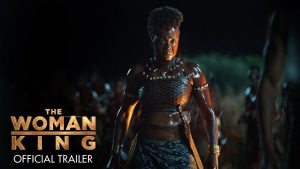
Direction and Cinematography
Gina Prince-Bythewood’s direction is nothing short of masterful. She creates an immersive world that feels both authentic and grand. The kingdom of Dahomey is brought to life with meticulous attention to detail, from its vibrant markets to its imposing royal palace.
Cinematographer Polly Morgan captures the beauty and brutality of the film’s setting. The lush landscapes of West Africa contrast sharply with the visceral, high-stakes battle sequences. The use of natural lighting enhances the realism, while dynamic camera work ensures the action is both thrilling and comprehensible.
Action and Choreography
The action sequences in The Woman King are some of the best in recent memory. The combat is grounded, emphasizing the Agojie’s discipline, skill, and teamwork. The choreography is intense and raw, showcasing the warriors’ physical prowess while avoiding over-reliance on CGI.
The film’s training montages and battle scenes are both exhilarating and character-building, revealing the strength, determination, and camaraderie of the Agojie. Every clash of weapons feels purposeful, and the stakes are palpable.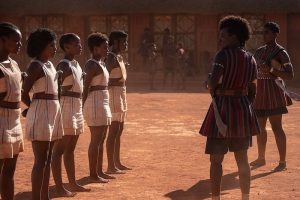
Themes and Cultural Significance
At its heart, The Woman King is a celebration of African culture, history, and resilience. The film highlights the strength of women in leadership roles, challenging traditional gender norms while exploring themes of unity and sacrifice.
It also confronts the moral complexities of the transatlantic slave trade, presenting a nuanced perspective on how African nations navigated this dark chapter of history. By weaving these themes into its narrative, the film transcends its genre, offering both entertainment and education.
Criticism and Limitations
While The Woman King is a remarkable achievement, it is not without its criticisms. Some viewers have pointed out historical inaccuracies, noting that the real Dahomey was deeply complicit in the slave trade. While the film addresses this issue, it arguably simplifies certain aspects to maintain its focus on empowerment and heroism.
Additionally, some supporting characters could have been developed further, as their motivations and backstories are occasionally overshadowed by the central plot.
Conclusion
The Woman King is an extraordinary film that blends historical drama with action-packed storytelling. Viola Davis leads an outstanding cast in a story that is as inspiring as it is emotionally resonant. Gina Prince-Bythewood’s direction, combined with stellar performances, stunning visuals, and thoughtful themes, makes the film a powerful ode to resilience, courage, and the enduring spirit of women.
While it takes creative liberties with history, the film’s impact lies in its ability to shed light on an overlooked chapter of African history and to celebrate the strength and agency of its characters.





